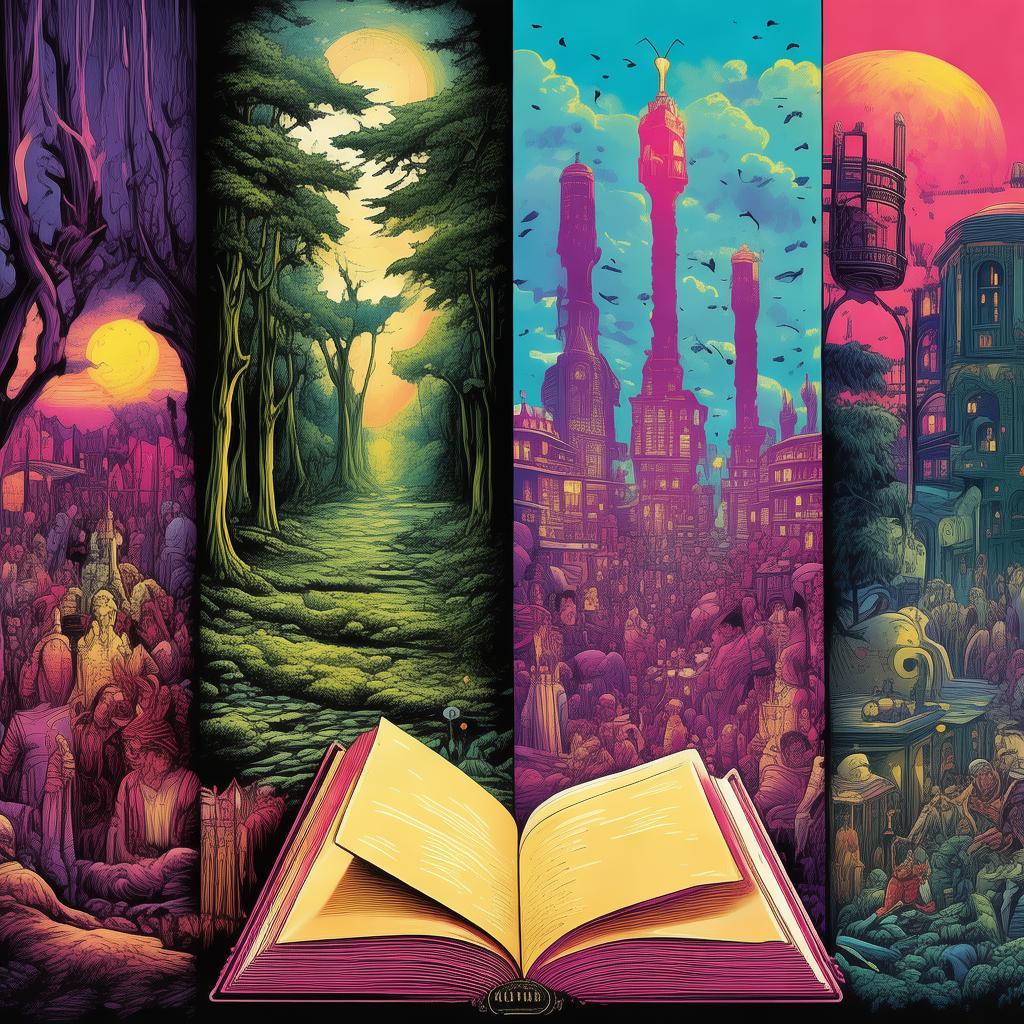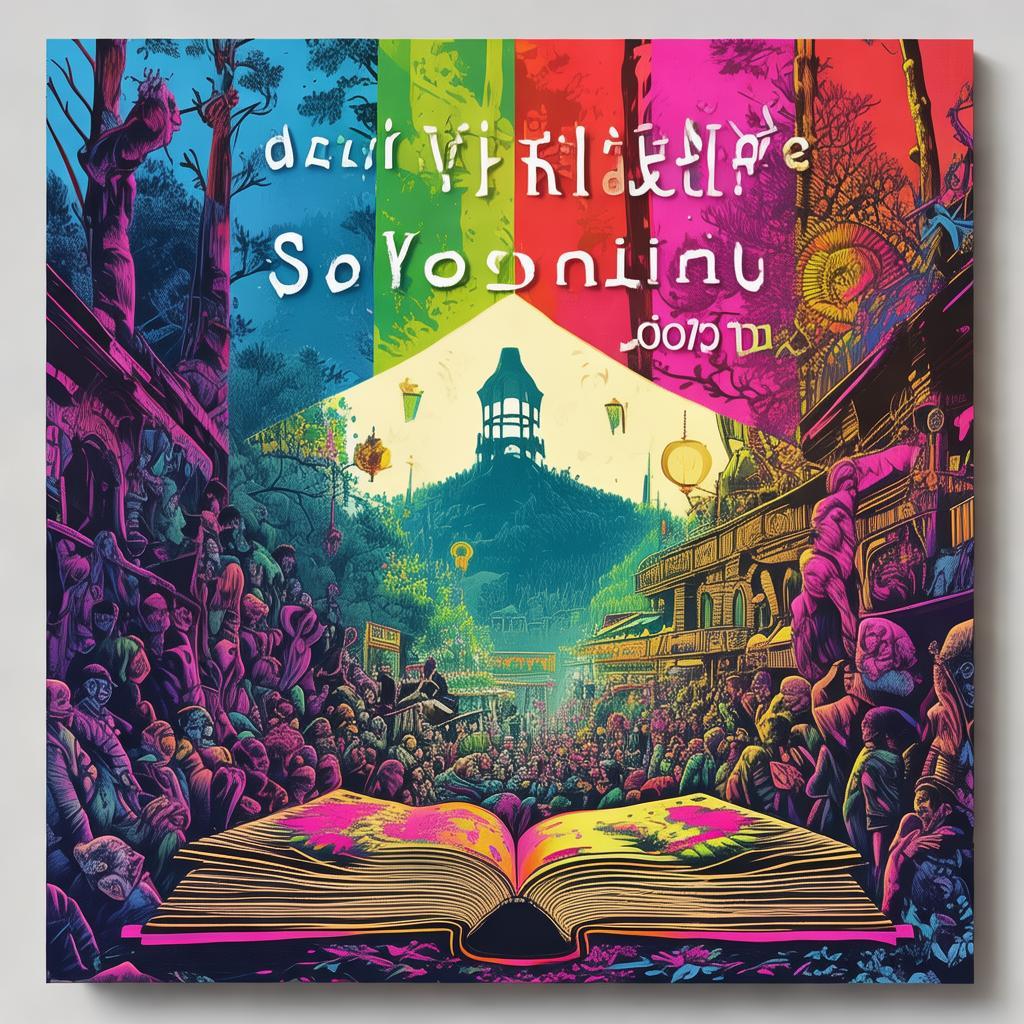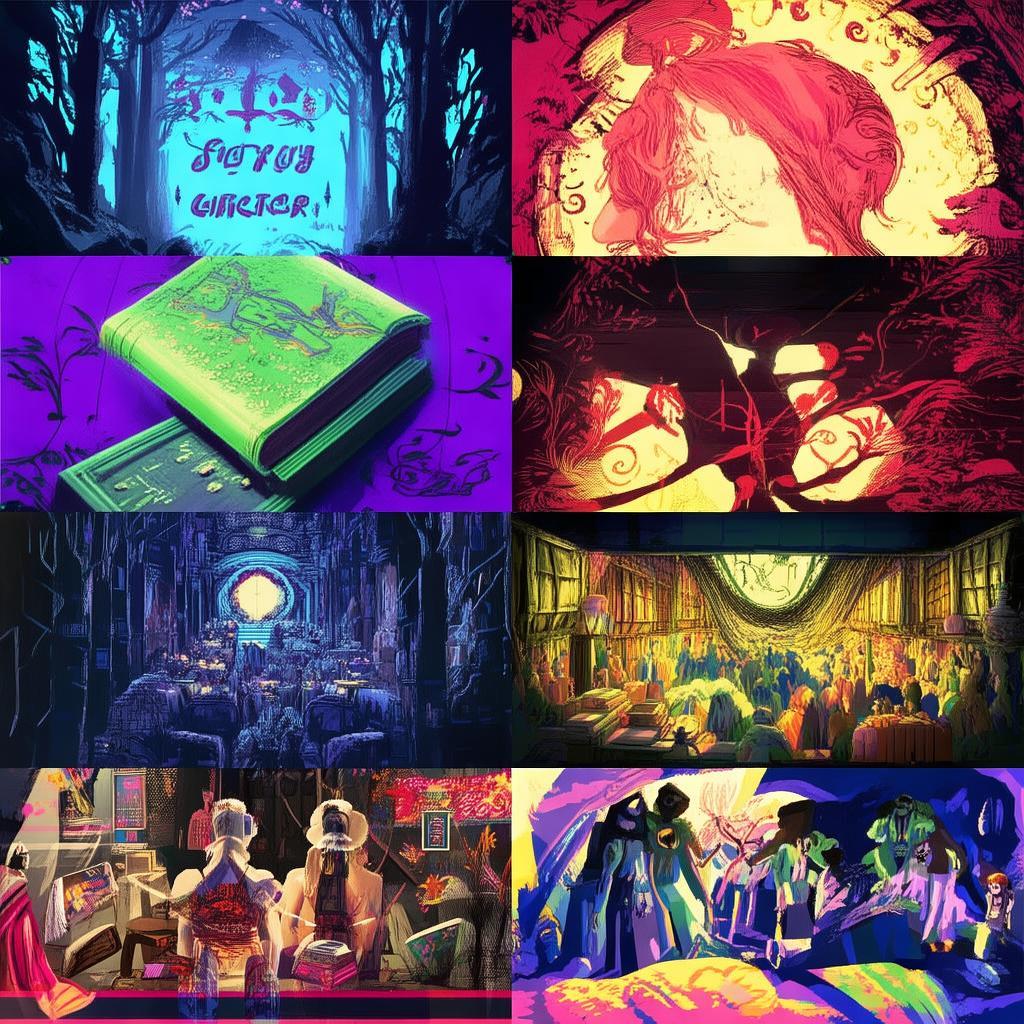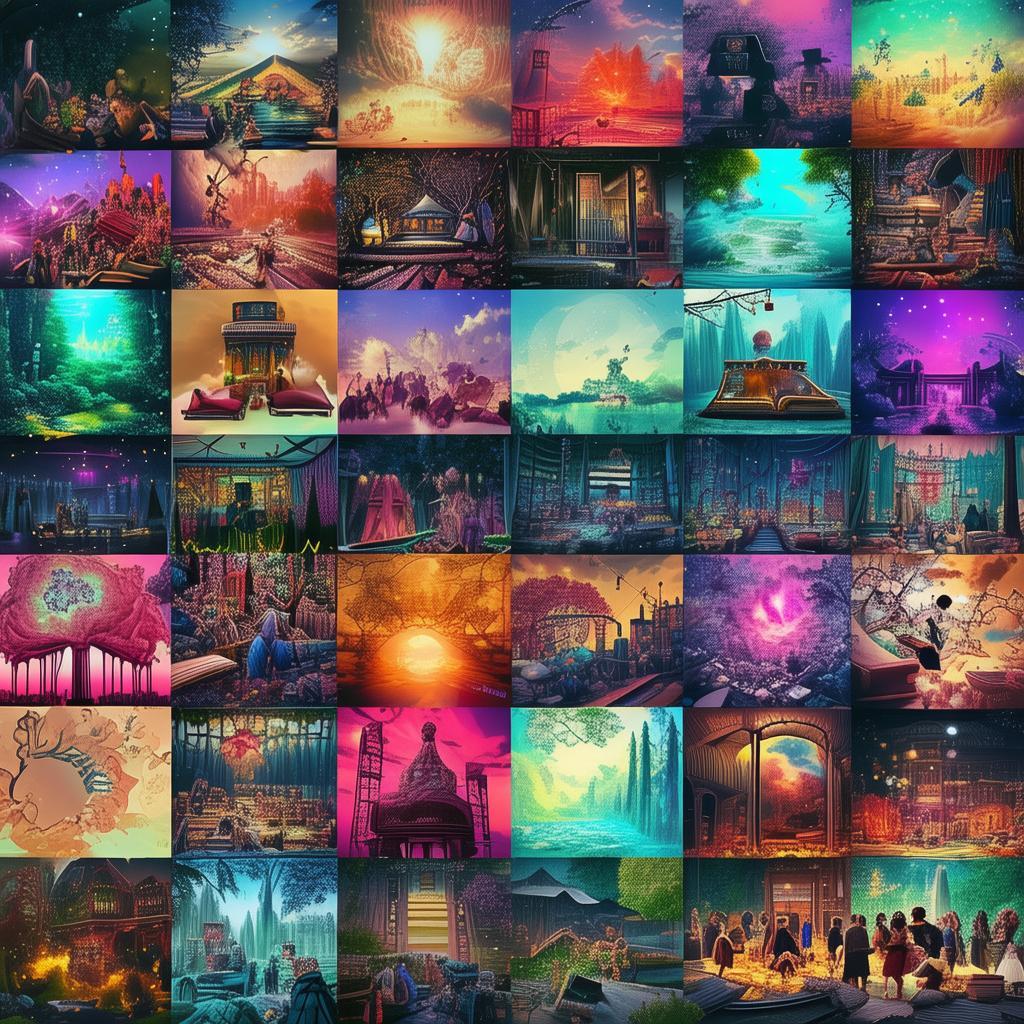The False Bread: A Painter's False Promise
The fog clung to the cobblestone streets of the town like a shroud, whispering secrets to those who dared to listen. Elara, a young painter with a brush as steady as her heart was unsteady, wandered the shadowy alleys, her canvas slung over her shoulder like a burden she couldn't bear to leave behind.
She had been in this town for a year now, eking out a living with her art, her paintings of the fog-draped landscapes that seemed to hold the secrets of the world within their misty embrace. But today, something different called to her. A small, unassuming antique shop caught her eye, its windows frosted with a film of condensation that seemed to pulse with an otherworldly rhythm.
Stepping inside, the air was thick with the scent of old wood and musty paper. The shopkeeper, an elderly man with a twinkle in his eye, greeted her with a knowing smile. "Welcome, dear artist," he said, his voice as smooth as the polished surface of the furniture in his shop. "I have something that might interest you."
Elara followed his gaze to a dusty corner, where a painting lay hidden behind a pile of vintage fabrics. It was a portrait, but not of any person she recognized. The subject was a woman, her eyes wide with a mixture of wonder and fear, her hands gripping the edge of a table as if she were about to flee from something unseen.
The painting was unlike anything she had ever seen. The colors were vivid, almost glowing, and the woman's expression was hauntingly real. "This is quite a piece," she said, her voice barely above a whisper.
The shopkeeper nodded. "It's called 'The False Bread.' They say it's a painting of a woman who found herself in a world where the bread she ate was made of lies. She sought the truth, but it was a journey that would change her forever."
Elara's curiosity was piqued. She reached out to touch the canvas, her fingers brushing against the woman's face. There was a warmth to it, as if the painting were alive, breathing its secrets into her hands.
"Would you like to buy it?" the shopkeeper asked, his eyes twinkling with mischief.
Elara hesitated. She had little money, and the painting was expensive. But something about it pulled at her, a siren call that she couldn't resist. "I'll take it," she said, her voice firm.
As she left the shop, the painting seemed to follow her, its presence a constant companion, whispering promises of a life beyond her current struggles.
Days turned into weeks, and Elara worked tirelessly on the painting, her brush strokes becoming more confident with each passing day. She began to see the woman in the painting as a reflection of herself, searching for something that was always just out of reach.
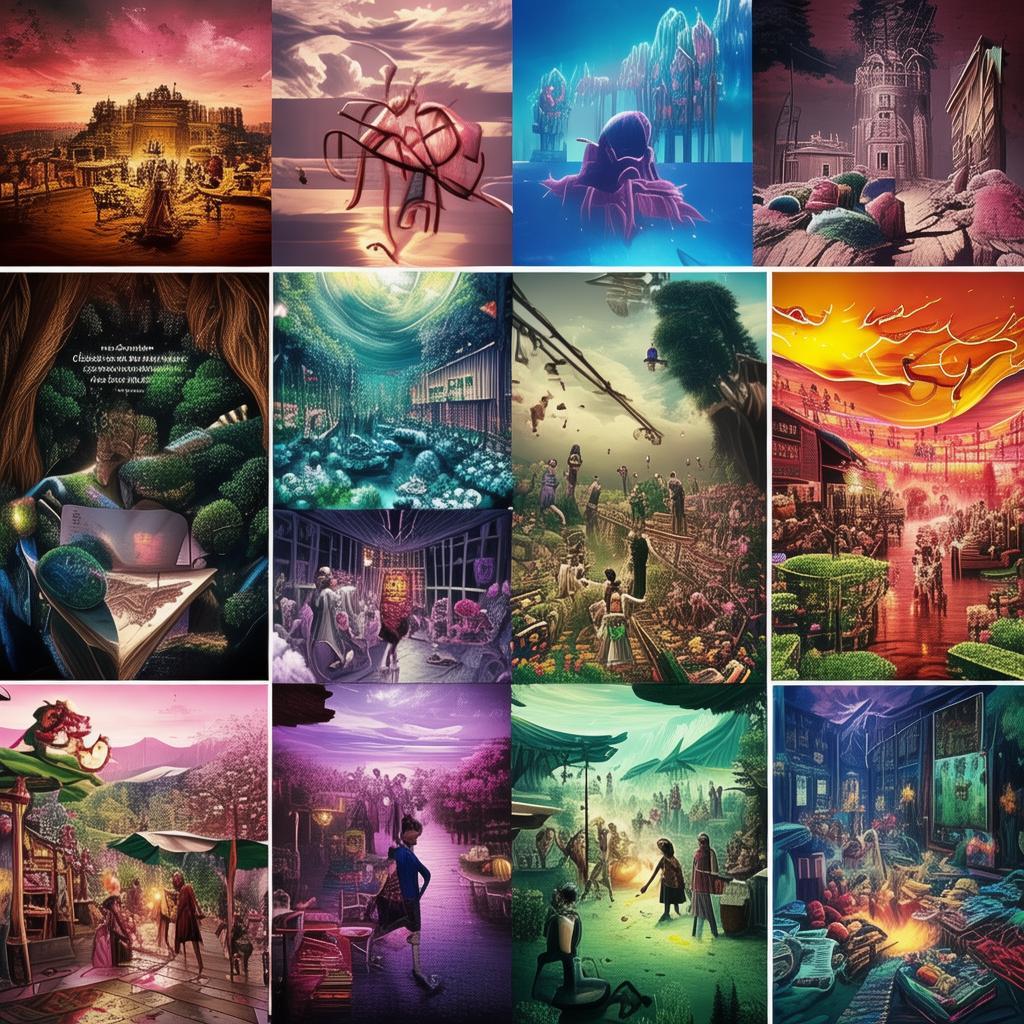
One evening, as she stood before the canvas, the painting seemed to shift. The woman's eyes met hers, and for a moment, Elara felt a connection, as if the painting were a portal to another reality. She reached out, and the canvas seemed to pulse beneath her fingers.
The next morning, Elara awoke to find herself in a strange room, the walls painted with the same vivid colors as the painting. She was alone, but the room was filled with objects that were not there before: a loaf of bread, a mirror, and a small, ornate box.
She approached the bread, her stomach growling with hunger. As she took a bite, she felt a strange sensation, as if the bread were made of something other than flour and water. It was cold, almost icy, and the taste was unfamiliar, a mixture of sweetness and bitterness.
Elara's heart raced as she realized she was in the world the painting had promised. She had to find the truth, but she had no idea where to start. She wandered the room, her eyes fixed on the mirror, which seemed to reflect a different version of herself, her hair a mess, her eyes wild with fear.
Suddenly, the door opened, and a figure stepped into the room. It was the woman from the painting, her eyes wide with the same mixture of wonder and fear. "I've been expecting you," she said, her voice echoing in the empty space.
Elara's heart pounded in her chest. "Who are you?" she demanded.
The woman smiled, a twisted, unsettling smile. "I am the one who eats the false bread," she said. "And you are the one who will help me find the truth."
As the woman spoke, Elara realized that she was not alone in this strange world. There were others, trapped in this reality, each one searching for the truth that had been stolen from them. Together, they would have to face the dark underbelly of their own pasts, confront the lies that had shaped their lives, and find a way to break free.
The journey was fraught with danger, filled with twists and turns that threatened to pull them apart. But Elara, driven by the painting's promise and the woman's unwavering belief, pressed on, her heart pounding with a rhythm that matched the ticking of the clock that hung on the wall, counting down the seconds until they would either be free or trapped forever.
In the end, Elara discovered that the painting was not just a work of art, but a mirror to her own soul. The woman in the painting was a version of herself, searching for the truth that had been hidden from her all along. And the false bread was a metaphor for the lies she had been fed, the illusions she had believed in, and the reality she had been running from.
With the woman's help, Elara faced her past, confronted the darkness that had haunted her, and found the strength to break free. The painting, once a source of mystery and promise, became a symbol of hope and redemption, a reminder that even in the darkest of times, the truth could be found, and the light could shine through.
As Elara stepped back into her own world, the painting remained behind, a testament to the journey she had taken and the truths she had uncovered. The painting's promise had been fulfilled, and Elara, forever changed by the experience, knew that she would never be the same again.
The painting had been a false promise, but the truth it had revealed was the real treasure she had found. And as she looked at the painting one last time, she smiled, knowing that she had found something far more valuable than any piece of art could ever be—a piece of herself.
✨ Original Statement ✨
All articles published on this website (including but not limited to text, images, videos, and other content) are original or authorized for reposting and are protected by relevant laws. Without the explicit written permission of this website, no individual or organization may copy, modify, repost, or use the content for commercial purposes.
If you need to quote or cooperate, please contact this site for authorization. We reserve the right to pursue legal responsibility for any unauthorized use.
Hereby declared.

